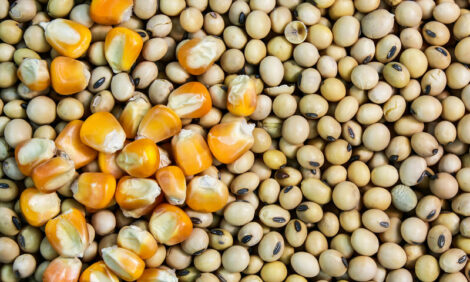



The Downside Of Dairying
NEW ZEALAND - Dairy produce is at an all-time high on international markets. New Zealand is claimed to be the "most energy-efficient producer of high-quality animal protein in the world", and the industry argues that it creates jobs, generates wealth and doesn't pollute.Its critics ask what value is there in being the most efficient in an inefficient industry and accuse dairying of rampant self-interest and masking the true costs of its operations.
Most people these days agree that an industry must take account of ecological and ethical considerations, ie go beyond short-term profit and anticipate outcomes that have longer-term, social costs. In Canterbury these considerations centre round the irrigation and fertilisation necessary to maintain high levels of grass growth.
Canterbury's flat terrain lends itself to central pivot irrigators which pump vast quantities of water onto heavily fertilised pasture. Central pivot irrigators necessitate the removal of shelter belts within their orbit despite the fact that the trees were planted to protect top soil from the wind, and to provide shade and shelter for stock.
Irrigators and dairy processing use a lot of electricity; Fonterra is the country's second largest electricity consumer. Demand is pushing prices up to a level where some people cannot afford to heat their homes and eventually it will exceed supply.
On thin, porous soils like the Canterbury Plains, there is the potential for pollution of aquifers and surface water eco-systems, and for human and animal health problems resulting from exposure to chemical residues and bacteria in the water and food chain.
The water lobby argues that we are already seeing dire consequences in the death of streams, adverse effects on water flow in rivers, and the pollution or drying up of wells. It also argues that the aquifers which provide water to the heavily settled areas in and around Christchurch will be affected if the water that replenishes them is diverted into irrigation.


